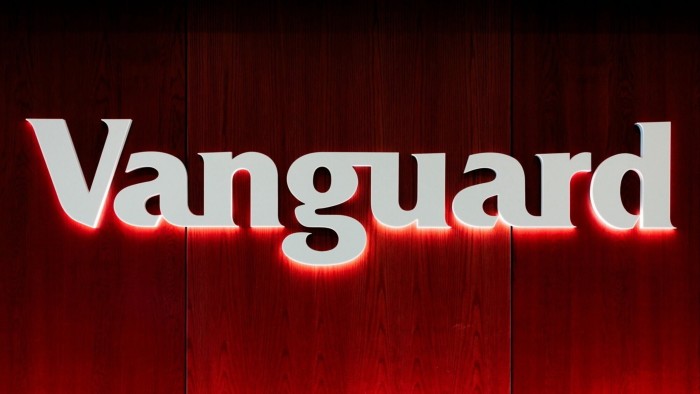Stay informed with free updates
Simply sign up to the US financial regulation myFT Digest — delivered directly to your inbox.
Vanguard has bowed to regulatory pressure and agreed to new oversight of its investments in some US lenders, a decision that could have sweeping implications for money managers and banks.
The deal, which the US Federal Deposit Insurance Corp disclosed on Friday, will allow Vanguard’s funds to continue to be huge shareholders in a wide swath of the country’s banks while also increasing the watchdog’s supervisory power over the $10tn money manager.
Vanguard, BlackRock and State Street have amassed large stakes in US banks as investors have poured into “passive” funds that buy-up shares in a vast number of stocks. Some regulators and politicians have grown concerned that the scale of these holdings could allow big passive fund managers to influence companies that are vital to the economy.
FDIC board member Jonathan McKernan said: “The passivity agreement entered into by Vanguard today should enable the FDIC to address, with respect to Vanguard, the concerns I raised in January 1 and several times since about gaps in the FDIC’s monitoring of the purported passivity of the largest index fund complexes.”
Under the pact announced on Friday, when Vanguard owns more than 10 per cent of the outstanding shares of a company that owns an FDIC-supervised bank, the fund group will file a so-called passivity agreement with the watchdog. That means Vanguard must attest that it will not seek to influence the behaviour of the bank, for instance by pushing it to lend to sustainable energy companies and not oil producers.
The agreement comes just days before a December 31 deadline the watchdog set for Vanguard and BlackRock to sign the agreements or face a legal fight over whether they are required to do so. BlackRock and industry groups have resisted the new restrictions saying they will needlessly raise compliance costs and make bank stocks less-desirable investments.
The firms also question whether the FDIC has the power to regulate the way they invest.
Vanguard’s agreement with the FDIC would not cover investments in the nation’s largest banks, such as JPMorgan Chase or Bank of America, which are regulated by the Federal Reserve. But it would cover numerous mid-sized and regional lenders where Vanguard holds more than 10 per cent of their shares.
Index funds are already required to be passive investors, especially in banks. But in the past regulators have allowed investment fund managers to self-certify that they will be passive.
The new passivity agreements will put concrete restrictions on Vanguard, as well as impose a new monitoring regime to enforce the agreements overseen by the FDIC. The agreements will specifically bar Vanguard from exerting influence over the banks by nominating directors.
Vanguard will still be able to vote on shareholder resolutions at the bank’s annual shareholder meeting.
The FDIC originally imposed a deadline of October 31 for Vanguard and BlackRock to sign the passivity agreements, before pushing the deadline back twice. The watchdog is separately considering a new rule that would require passivity agreements for investments in a wider range of banks.
The FDIC and BlackRock have not said whether the money manager expects to reach a similar agreement with the regulator before the deadline. As a bank, State Street is more closely supervised so the passivity rules do not apply.




